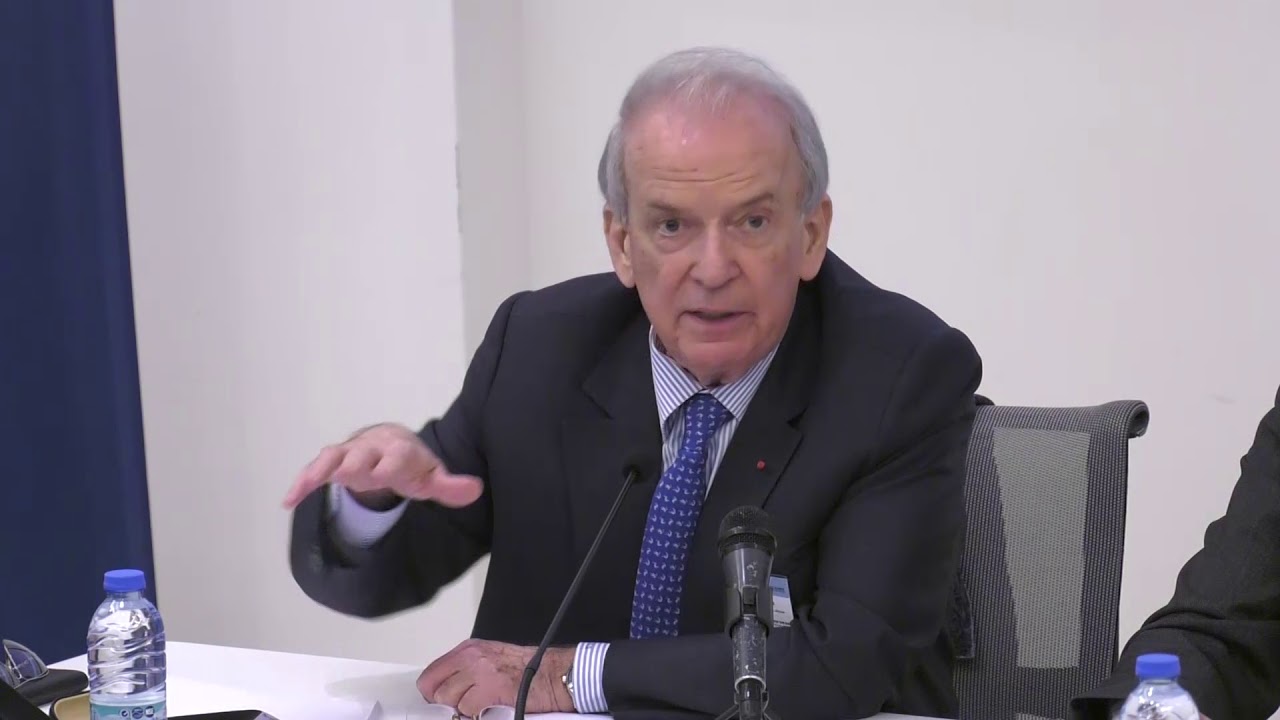BEIRUT/PARIS: The formation of a Lebanese government headed by Hassan Diab showed that “Hezbollah has completed its takeover of the Lebanese state,” former minister Marwan Hamade told Arab News.
Hamade, a leading member of Lebanon’s Druze, led by Walid Jumblatt, said that Hezbollah regained a parliamentary majority in 2018 thanks to an electoral law designed to benefit the pro-Iranian party.
“Now Hezbollah completes its takeover through the new government where we find the fingerprints of the Syrian regime. The majority of the new ministers in key positions depend either on Hezbollah or on the former security chief, the pro-Syrian Jamil Sayyed, or on Gebran Bassil, their ally,” he said.
Hamade said that the new government will face the same factional tensions and rivalries as previous leaderships, with a pro-Iranian Syrian faction controlling the state along with factions allied to Hezbollah.
The focus will be on Lebanese central bank governor Riad Salame. “They hold him responsible for implementing US sanctions on Hezbollah, and there is a tendency to make him pay and to destroy the financial sector. Lebanon is turning into a battle front in the conflict between the US and Iran,” Hamade said.

Marwan Hamade, a leading member of Lebanon’s Druze, said that Hezbollah regained a parliamentary majority in 2018 thanks to an electoral law designed to benefit the pro-Iranian party. (YouTube Screengrab)
Asked about the new foreign minister, Nassif Hitti, a former Arab League envoy, Hamade said: “Hitti will be able to do minor things through his personality, but Lebanese policy and diplomacy will not be within his hands — regrettably it will be in Hezbollah’s.”
After the first meeting of Lebanon’s newly formed Cabinet on Wednesday, Prime Minister Hassan Diab attempted to reassure the public that their concerns are being addressed, but warned that there would be no quick solution to the “economic catastrophe” the country is facing.
The new coalition government was formed on Tuesday after almost 100 days of widespread public protests about the state of the economy, corruption, high unemployment and a lack of basic services, The majority of its 20 ministers belong to Hezbollah and its allies. Its announcement was greeted by calls for further protests by those skeptical of its ability to take the action needed to address the problems it has inherited, the greatest of which include the need to resolve the economic crisis and a lack of confidence in the government, at home and abroad, which is stifling investment.
Diab tried to reassure the public after the Cabinet’s first session that it is up to the job. He said he has already met many foreign ambassadors and all had shown “willingness to cooperate.”
He added: “We are facing a financial and economic catastrophe that needs a long time to be resolved and I am sure that each of the ministers is aware of this.”
Diab also called on the security forces to “deal wisely with the protests and differentiate between riots and peaceful protests.”
He also revealed that Riad Salameh, the governor of Lebanon’s central bank had not been fired. He did, however, acknowledge that some coalition parties, and many of the protesters, blame Salameh’s financial machinations for the country’s economic situation.
Finance Minister Ghazi Wazni said: “Lebanon is witnessing a banking, monetary and economic crisis on a scale that has never been seen before. If the crisis persists, we will reach bankruptcy. The government must prepare a comprehensive rescue plan or program.
“The country is in a state of economic contraction, and confidence must be restored. The crisis needs external support. We will be in big trouble if the government fails to gain that external support.” He added that it was impossible for Lebanon’s currency to return to it’s previous exchange rate against the dollar.
The new Cabinet includes six women, including Zeina Akar, the minister of defense and deputy prime minister. The prime minister nominated four members of the Cabinet. Of the rest, President Michael Aoun’s Free Patriotic Movement supplied six, while Hezbollah, the Amal Movement, the Marada Movement, the Lebanese Democratic Party each supplied two ministers. The Sunni Consultative Gathering and Tashnag each have a single minister.
A Cabinet committee was scheduled to meet on Thursday, and the government is due to present its political, economic and social vision to the parliament for approval. This will require a simple majority, which means 65 votes in total. If it fails to win this vote of confidence, the new administration will become a caretaker government.
After the traditional memorial photo of the new government was taken, parliamentary speaker Nabih Berri expressed his “optimism about the government despite the Lebanese media’s pessimism.”
Diab described it as “the government of exceptions. It is a rescue team. The government’s task is very difficult, but not impossible.”
He promised that it would “work to fulfill the protesters’ demands, and to maintain the independence of the judiciary, recover the looted funds, combat illicit enrichment, protect the poor from tax injustices, fight unemployment, establish a new election law that strengthens national cohesion, and to affirm the principle of accountability that we adhere to and do not fear.”


























